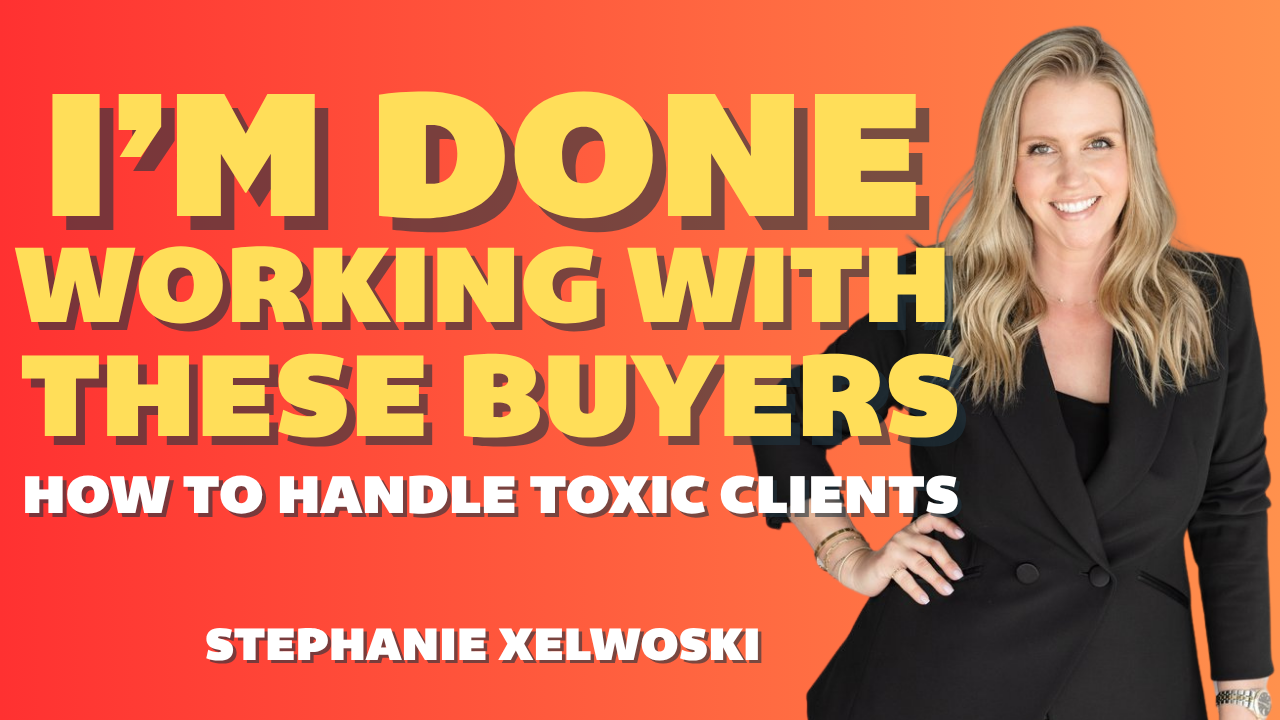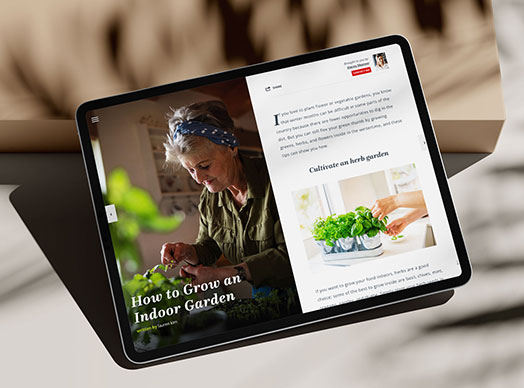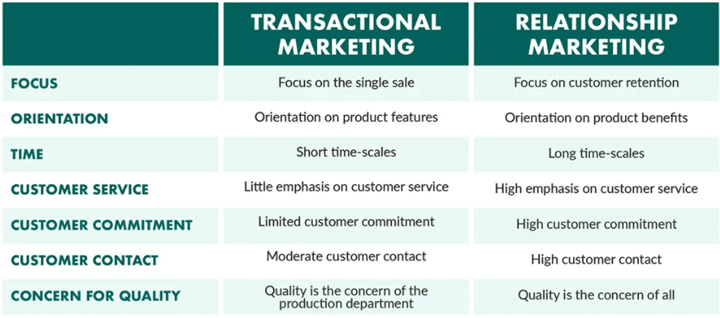Ep. 243: How to Master Relationship Marketing (with Glennda Baker)
How Does Relationship Marketing Work?
If you’re going to understand relationship marketing, you need to start by knowing that it’s not a short-term strategy.
Who should listen: Anyone who wants to understand how they can effectively implement relationship marketing in their business.
Key Point: If you don’t form lasting relationships with your clients, you’re essentially a service provider who can be replaced easily. However, if you give sincere attention to building and nurturing relationships, you’ll create clients who’ll never leave.
Action Item: Try Glennda’s 10+10+5 system to connect with your sphere.
You may have tried relationship marketing before, and it didn’t work for you.
Let’s be more specific (and honest)—you may have used us or some other company to assist you with your relationship marketing, but you didn’t see the ROI. So, naturally, you stopped using whatever service it was that you had.
Well, as much as you may not want to hear this, we’re confident that relationship marketing didn’t work for you because of at least one of these four reasons:
- You didn’t have the patience to wait for results.
- You weren’t consistently reaching out to your clients.
- You didn’t engage in sufficient follow-up with your recipients.
- You misunderstood the true nature of its ROI.
How can we be so sure?
First, if relationship marketing didn’t work, then exceptionally successful entrepreneurs like Andy Dane Carter, Barb Betts, Ricky Carruth, David DeCelle, and many others—including this week’s guest, Glennda Baker—wouldn’t swear by its efficacy.
Second, if relationship marketing didn’t work, we’d have gone out of business a LONG. TIME. AGO.
In just a minute, we’re going to explain how you can avoid the four pitfalls listed above by understanding how relationship marketing works and share how Glennda—a tremendously successful real estate agent with a ton of accolades—has implemented it to produce lucrative results.
But first, in the spirit of full transparency, you should know that Glennda is a long-time ReminderMedia client. Even so, her relationship marketing goes far beyond sending one of our magazines to her sphere.
Her methods plainly show that if you take steps to apply relationship marketing to your business the way it is meant to be used, you will see results.
1. Relationship marketing is a long-term strategy.
Depending on who you ask, there are anywhere between two and 163 types of marketing—at least that’s what our Google search returned. With some satisfaction, we can report that except for one list (whose writer insisted there were only two types of marketing), relationship marketing was on all of them.
There are several significant differences between relationship marketing and more traditional, transactional forms, including relationship marketing’s orientation toward being a long-term strategy:
You might ask how long is long-term?
The short answer is years.
Businesses engaged in relationship marketing want to keep clients for life.
While every business could benefit from having lifelong clients, it may not make economic sense for those that trade in inexpensive, consumable goods and where customers are interchangeable.
However, if your business offers services and advice to clients who expect personal, customized solutions, and where the time between transactions can be years, then relationship marketing may be a perfect fit.
In this latter type of business, the cost of long-term marketing, even if it is after years, will typically be covered many times over by one transaction. Think of a real estate agent who makes one deal on a $375,000 home, a financial advisor who makes one percent on assets under management, or a car dealership who sells a $40,000 SUV.
With relationship marketing, your ROI may not be immediate, but it can be substantial.
As Glennda says in her interview, “I’m not looking for a return on investment. I’m looking for a return on relationship.” Her persistence in staying in touch with clients across years of engagement has meant that her team of three was able close 149 transactions last year, with the majority coming to her either through repeat business or referrals.
2. Relationship marketing depends on consistency.
Like any healthy and productive relationship, a lasting relationship between a business and its clients requires trust if it’s going to work, and the onus is on the business to build this trust.
And while the way to a man’s heart may be through his stomach, the way to earning clients’ trust is through being consistent in all your interactions with them. This includes your level of customer service, your branding and messaging, and the quality, quantity, and timing of your marketing.
What’s so special about being consistent?
When you are consistent in how you interact with your clients, their experience with you becomes familiar and predictable. Clients are comfortable when they know what to expect, and the more often their expectations are met, the more they are willing to trust the source of these experiences.
On the other hand, clients typically don’t like it when their expectations are not met. Their trust in a business may diminish, or they may withhold it all together, having decided they won’t do business with that company again.
While many small business owners are very enthusiastic about their relationship marketing when they first start, maintaining that enthusiasm can be a challenge—especially when it comes to nurturing relationships over a long period. We can help with that by providing automated print and digital marketing solutions. You can find out more about our solutions here.
Glennda has developed a system for her relationship marketing, which is the only way to effectively sustain this type of marketing. She explains that using our automated products helps her to be consistent (she sends one of our magazines every two months), but she doesn’t rely on us alone.
- Every week, she calls 25 people. (You can listen to Glennda explain her easy 10+10+5 system for making calls.)
- Every month, she completes no less than 40 pop-bys.
- Every 60 days, she ensures that her entire sphere receives either a call, text message, or video text from her.
- She maintains a schedule on social media with her podcast and with spontaneous, personal posts to Facebook, TikTok, and Instagram.
- She conducts open houses.
- She engages in geofarming.
Like our other successful Stay Paid guests, Glennda treats her real estate business like a business, working to give it all the time, attention, and resources that every successful business requires.
3. Relationship marketing works best when you follow up with clients and prospects.
Here is where so many business owners (aka salespeople!) fail when it comes to relationship marketing . . . they don’t follow up.
It’s naive to expect that because you sent someone a magazine or a social media post, they will beat a path to your door. It doesn’t work that way.
The operative part of relationship marketing is relationship. As Glennda puts it, if you’re a “hit it and quit it” agent, then you’re a service provider who is easily replaced.
If you are sending postcards, emails, magazines, or other pieces of marketing, then our best advice is to follow up with your recipients in the same week your piece arrives. The conversation should not be an attempt to sell something (which is the worst thing you can do). Instead, let your recipients know you appreciate them as clients. You might also ask them to connect you with someone who could use your services.
If you’d like some help with conversation starters, you can check out our free follow-up scripts.
4. Relationship marketing has an ROI grounded in loyalty.
During the interview, Luke asked Glennda to comment on the #1 pain point we hear from our clients when it comes to relationship marketing—they can’t track their ROI, and they don’t feel like they get anything from it, so they invest in a lead generation platform instead.
He wanted to know how she rationalizes putting all the effort she does into fostering and keeping her relationships.
Glennda’s response is crazy good, and she has examples to back up what she says. We encourage you to listen to it.
But here’s the gist of it . . .
Online/cold/purchased leads require a ton of nurturing. She equates these types of leads with the guy on Match.com who only texts you—he never buys you coffee, he never takes you to dinner, and he’s the first to run off with the next best thing. They have no loyalty.
Compare these leads to the relationships she’s developed over time. These are the clients who will never leave her because she’s built years’ worth of credibility.
Why, she wonders, would I invest time, money, and effort on a new lead and not invest those resources in someone who has been with me for 10 years?
How to make relationship marketing work for you.
If you take nothing else from reading this blog or listening to this episode, make sure it’s this:
To realize the return you make in relationship marketing, you must have a genuine interest in getting to know your clients and having them know you. You must be willing to invest the time to nurture the relationships you create with clients and prospective clients. You must be patient and consistent. And you must realize that your gains are based on loyalty that will reward you with new leads and repeat business.
Connect | Resources
Website: Glennda Baker & Associates, Inc.
Podcast: The Glennda Show
Social media: Search GlenndaBaker
















 Soundcloud
Soundcloud iHeart Radio
iHeart Radio Spotify
Spotify Spotify
Spotify


